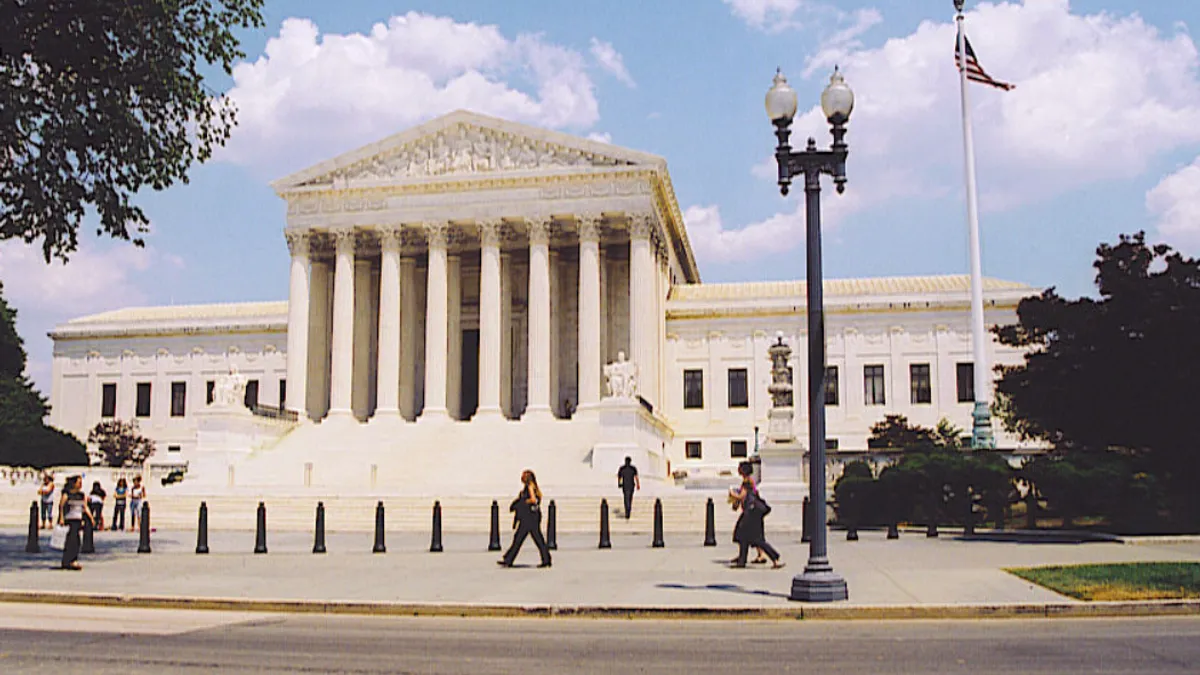Dive Brief:
-
A public tuition subsidy program that excludes religious schools discriminates against families who want their children to have a faith-based education, the U.S. Supreme Court ruled in a 6-3 decision Tuesday.
-
Limiting public funds from being used for religious instruction "promotes stricter separation of church and state than the Federal Constitution requires," wrote Chief Justice John Roberts in the majority opinion.
-
The decision, the first of two education cases expected to be released this term, will create more opportunities for public tuition-based programs. It was split along ideological lines.
Dive Insight:
The decision fills in the gap left open in the 2019 case Espinoza v. Montana Department of Revenue, which in a 5-4 split concluded Montana's state-based scholarship program funded by taxpayers cannot exclude schools based on their religious status.
However, in that case, the justices did not fully address whether the state could exclude institutions or families from participation because of the public aid's use. Today's decision in Carson v. Makin answers that question with a resounding no.
During oral arguments in Carson, justices weighed discrimination against both faith-based schools in favor of secular education, and by religious schools against individuals that have different sexual identities, disability status or other characterstics that conflict with the institutions' religious teachings.
Michael Bindas, a senior attorney with the Institute for Justice who represented the petitioners in the case, argued the program constituted religious discrimination. He also said religious schools that do not discriminate based on sexual orientation or gender identity are just as excluded from the tuition assistance program as are programs that do.
Conservative justices also pressed on the issue of discrimination against religious schools. "Our case law suggests that discriminating against all religions as compared to secular — comparable secular — is discriminatory, just as it is discriminatory to say exclude the Catholic and the Jewish and include the Protestant,” said Associate Justice Brett Kavanaugh.
Christopher Taub, chief deputy attorney general of Maine, defended the program as not discriminatory because "what we are trying to achieve are schools that are religious neutral."
However, in the decision released Monday, Roberts said "there is nothing neutral about Maine’s program."
"The State pays tuition for certain students at private schools — so long as the schools are not religious," Roberts wrote for the majority. "That is discrimination against religion."
In a dissenting opinion, Associate Justice Stephen Breyer wrote that Maine fell within leeway provided by the Constitution when it prohibited the religious use of public funds.
He noted "the increased risk of religiously based social conflict when government promotes religion in its public school system." The dissent was joined by Associate Justice Elena Kagan, and partly by Associate Justice Sonia Sotomayor, who filed a separate dissent as well.
The decision is expected to have widespread consequences for public tuition-based programs.
"It certainly energizes the choice movement," said Joshua Dunn, professor of political science at the University of Colorado, Colorado Springs. "As school choice broadly becomes more popular, and states respond to that, it's going to be more difficult for them to limit the range of choice options, at least legally."
This decision comes before one in Kennedy v. Bremerton, in which the Supreme Court is expected to decide whether a coach was within his rights when praying on school grounds — sometimes with students — after football games.
Together, the two cases could broaden the rights of religious schools and practices in the context of public education.














